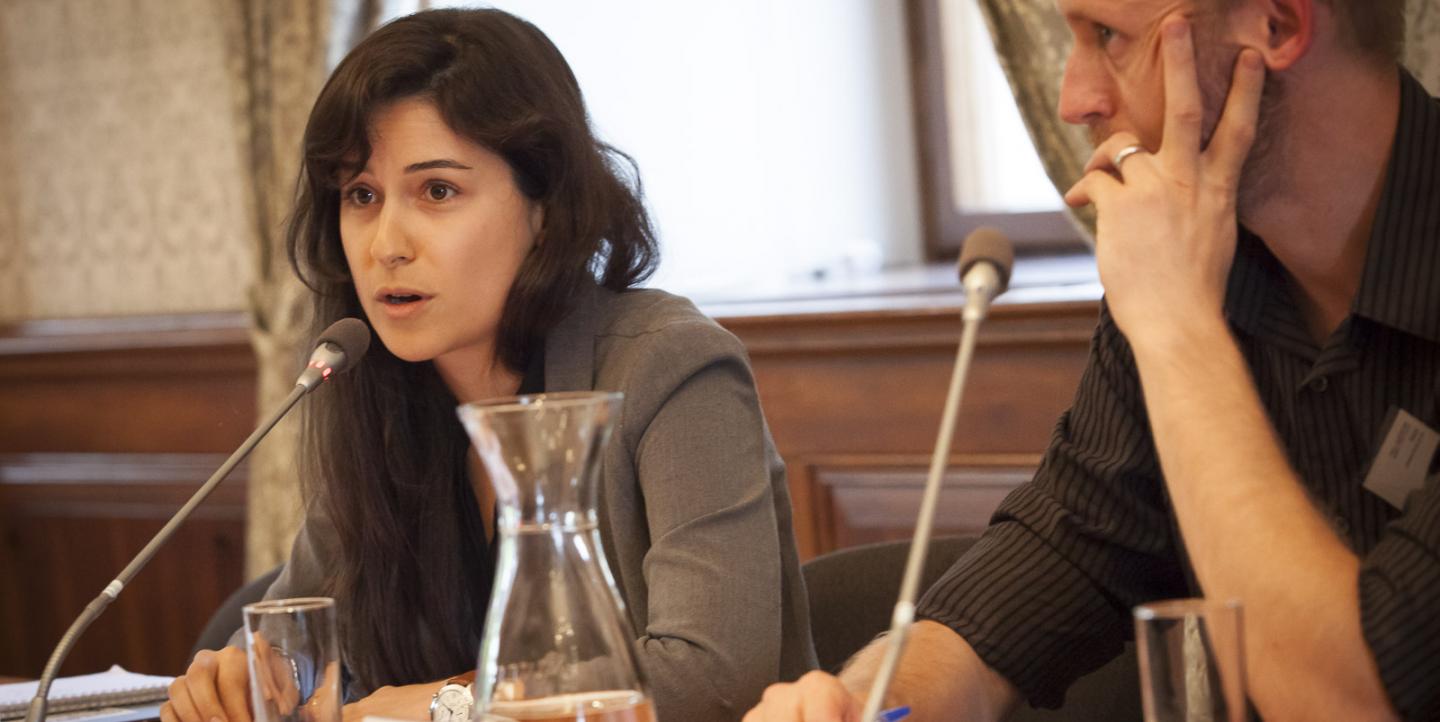Arzu Geybulla reports in one of the most challenging places in the world for journalists, but the fact that she's a woman makes her work even harder.
The Azerbaijani reporter, now based in Turkey, has dealt with online harassment, abuse and even threats to her family over the years — all largely a result of her gender and the focus of her work, which looks to expose human rights violations in her home country. Last year, the Azerbaijani media accused her of treason for her work at Agos, an Istanbul-based Armenian newspaper.
She's just one of many female journalists who have faced this kind of treatment. In September, Geybulla joined a group of about 80 journalists, media experts and government figures in Vienna to discuss solutions for countering online abuse directed at female journalists. At the Organization for Security and Cooperation in Europe (OSCE)’s summit, attendants compiled a list of recommendations for governments, media organizations and social platforms to follow.
"This is the 21st century, and witch-hunts and abuse should not be our topics of discussion at this day and age," she said. "Women deserve to have a voice as much as men do, as much as the LGBTQI community does. All it comes down to is about having a voice and freedom to express yourself. This should be the same for men and women or others."
IJNet spoke with Geybulla about her experiences, the OSCE summit and what should be done to protect female journalists from harassment online:
IJNet: What problems with online harassment did you experience before the OSCE summit?
Geybulla: In a nutshell, there were several types of harassment, from personal to sexual.
Last year, it took on a very ugly form when it was not only me who was harassed — my family was also used as an instrument. In Azerbaijan, the concept of family is sacred. If someone wants to humiliate you and really get to you, they will use your mother, father and siblings in order to hurt you just a little bit more.
In my case, all my family members were targeted, including my late father, even though the man died three and a half years ago. [He was parliament member after the independence of Azerbaijan and was actively engaged in the political life of Azerbaijan]. There were some who said they couldn't believe I was his daughter, or how a man of such experience could bring up a daughter like me, who is nothing but shame and disgrace to society. The ugliest of the ways they eventually used my father which really got to me was a cartoon someone drew and shared widely on social media with me in the arms of the Armenian president and my father's grave in the background holding his face in shame of my acts.
IJNet: What do you do to protect both your online and physical security?
Geybulla: Normally, I use encrypted email and self-destructing texting when I am concerned about the content of sent emails and text messages. I also use VPN/TOR when I’m concerned about my IP being tracked and so on. But no matter how much I protect my online security, there are no measures to be taken for physical safety. Unless I hire a bodyguard, which I don't think I will ever be able to do.
IJNet: What recommendations from the OSCE meeting stood out to you the most? Do you think involving governments, media organizations and social media platforms will help create change?
Geybulla: I definitely think involving governments, media organizations and social media platforms will help to create change, because change must happen on all levels for a society to change.
Governments should change their policies to provide equal rights and protection both online and offline on all platforms and everywhere — women should not fear being threatened, abused, raped or harassed, full stop. Unless the government takes serious measures to tackle this and works with the communities on all levels, this is not going to change.
Media organizations must have a protection mechanism. They must make sure their female journalists are safe and do not become objects in the hands of some sick men (and women), and most importantly, they should stand up for their female employees.
And of course, social media platforms are a great place to start this change, from combatting naming and shaming to exposing some of the most sickening and abusive language used against female writers and journalists just because they are women.
All of this needs education, community work and much reform, but I think all is doable — if there is genuine willingness and interest, of course.
IJNet: What advice would you give to fellow female journalists?
Geybulla: The only advice I can give is to be very strong when something like this happens or have someone who can help you get through it. I was facing all of this on my own in the beginning. I had my editor, my friends and community who supported me, but at the end of the day, if you cannot cope with it or have the stamina to cope with something like this, it’s very hard, no matter the support you have. So inner strength and the ability to simply not let these things get to you is crucial.
After that comes the decision to go public. For a while, I was afraid to share it publicly and speak up. I felt like my voice was gone. But once I realized that I still had the ability to speak, I gathered myself and simply started sharing, talking about my experience and realizing that I am not the only one; there are so many other women journalists who face the same.
This interview has been condensed and edited.

